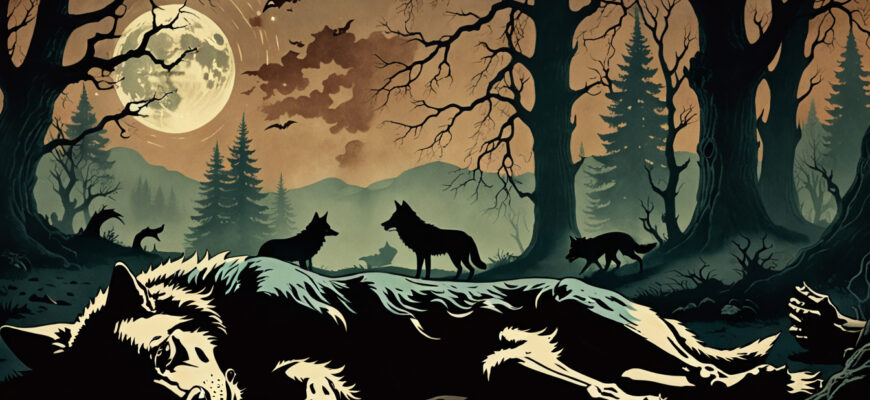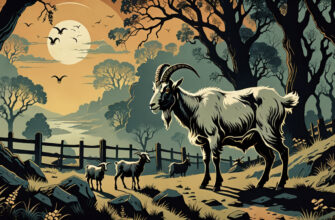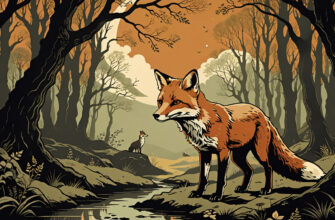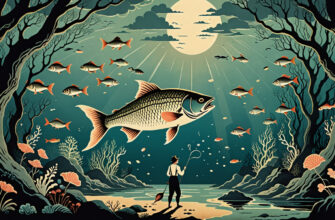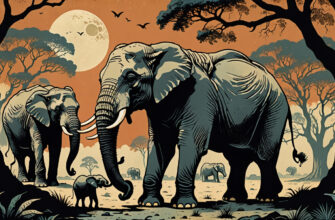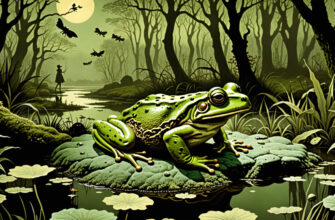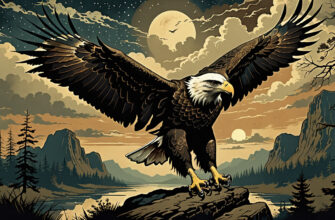Ever wake up from a dream with the image of a dead wolf burned into your mind? It hits different. That picture stays with you—raw, unsettling, like something sacred has been lost. Dreams talk in feelings, symbols, and shadows. They’re the emotional GPS your mind uses while reality sleeps. And when a wolf goes silent in that realm, it’s rarely random.
Wolves don’t just show up as animals in dreams—they’re messengers. They carry instincts, wildness, protective rage, intense loyalty. So when you find one lifeless, the meaning often flips. Something fierce inside you has dimmed. That can feel like a freeze, a loss of self, or even betrayal. Whether you saw the dead wolf in snow, in your arms, or in the middle of nowhere, it’s asking questions your waking mind might be avoiding. Has your instinct gone ignored? Is your wildness buried? Are you grieving something no one knows died inside you? Let’s decode it.
- Psychological Dimensions Of Dead Wolf Dreams
- Repressed Rage And Internalized Aggression
- Emotional Numbness Or Trauma Freeze Response
- Social Alienation And Betrayal Wounds
- Spiritual And Archetypal Symbolism
- Dying Animal Spirits And Disconnected Intuition
- Power Animals And Shadow Figures
- Ancestral Messages
- Cultural & Collective Meaning: How Society Shapes the Dream
- Erotic and Sexual Interpretations
- Self-Reflection & Shadow Integration
- Reclaiming Your Inner Wolf
Psychological Dimensions Of Dead Wolf Dreams
Dreaming of a dead wolf often messes with your head because it triggers deep, primal emotions. Not surface-level stuff. We’re talking repressed anger, buried trauma, and unshakeable loneliness. These aren’t “just dreams.” They’re your mind knocking—loudly.
Repressed Rage And Internalized Aggression
You’ve learned to keep your temper “in check,” your wildness well-behaved. Over time, that suppression can look like a dead wolf in the dream world. The dream might come after a stretch of people-pleasing, staying silent when your soul wanted to scream, or biting your tongue in the face of injustice. Think:
- When was the last time you expressed uncensored emotion—rage, lust, ambition?
- Has your “nice” persona become a prison?
A dead wolf can signal the toll of self-restraint. You’ve been tamed, but at what cost? Rage has nowhere to go, so it settles into your shadow, lying in the emotional dirt—lifeless but not forgotten.
Emotional Numbness Or Trauma Freeze Response
Sometimes, it’s not anger. It’s absence. The numbness. Maybe your inner wolf died because it had to. Because shutting down was safer. People who’ve experienced trauma often feel that lifeless animal is a part of themselves—loyal but abandoned. When survival mode kicks in, instinct dies so the body can keep moving.
That kind of shutdown can show up as:
| Sign You’re Frozen | Dream Meaning |
|---|---|
| Flat emotions | Loss of instinct, disconnection from inner self |
| Chronic exhaustion | Internal wildness caged too long |
| Can’t cry even when things hurt | Emotional shutdown masked as strength |
That dead wolf dream might be your nervous system finally whispering, “I’ve carried too much.”
Social Alienation And Betrayal Wounds
Wolves are never truly alone—they run in packs, live with loyalty as religion, mourn with ceremony. But you? If you’re dreaming of a lone, dead wolf… that’s grief your community never saw. Maybe you were left behind. Maybe you never felt like you really belonged to begin with.
Ask yourself:
- Where have I felt abandoned or exiled?
- Am I grieving a friend or relationship that faded without funeral?
The image can even emerge after betrayals that looked quiet on the surface—but gutted you on the inside. A dead wolf in a dream can be your heart showing you where the betrayal still lives.
Spiritual And Archetypal Symbolism
In the spiritual zone, wolves don’t just howl—they guide. So seeing one dead can mean the compass is broken. You’re walking through the woods blindfolded, disconnected from your gut, your soul path, or divine protection.
Dying Animal Spirits And Disconnected Intuition
In shamanic traditions, wolf spirits represent fierce wisdom. They teach by instinct, not intellect. To dream of one lifeless could mean your intuition was silenced—by anxiety, overthinking, or a life lived on autopilot. You used to follow feeling, and now maybe you rely on data, approval, or someone else’s map. The dream says: you forgot how to howl.
Power Animals And Shadow Figures
Sometimes, this isn’t just a wolf. It’s your wolf. Your erotic, wild, angry, chaotic shadow self. Our society sells civility as survival—but what’s lost beneath that polish? A dead wolf might mean your personal power was sacrificed so others could stay comfortable. That part of you wasn’t destroyed—it went underground.
Ancestral Messages
Here’s where it cuts deeper. The dead wolf might not be about you alone. Wolves howl through bloodlines too. Some dreams carry inherited wounds—ancestral silence, generational struggle, grief echoing through your DNA. Maybe the wolf you see has your grandmother’s eyes, your great-uncle’s sacrifice, or your cousin’s rage they were never allowed to show.
This may be your call to break a pattern. Mourn what was lost. Reclaim what was stolen. And stand in a lineage that howls back.
Cultural & Collective Meaning: How Society Shapes the Dream
Why do some people dream of killing wolves while others dream they died on their own? Culture has answers for that. Wolves have always been mirrors for us—howling back whatever we project. In one place, they’re loyal guardians. In another, lonely monsters stalking innocents. It all feeds your dream symbols.
Think of Native American stories, where wolves were seen as teachers and pathfinders—guides who held deep respect. Contrast that with European tales that turned wolves into classic villains. “Little Red Riding Hood” wasn’t just folklore. It was a warning to repress desire, curiosity, disobedience.
Over time, the image of the wolf got twisted—especially the parts that overlap with primal power, sexuality, rage. So when your culture demonizes the wolf, what happens to the wolf part of you?
If a dead wolf shows up in your dream, it might be a quiet rebellion—your psyche resisting that social domestication. You weren’t born to be tame. And your dream knows it.
Erotic and Sexual Interpretations
Sexuality isn’t just about attraction—it’s instinct, pulse, the places your animal body remembers even when your mind tries to forget. Dreaming of a dead wolf can mean that energy is fading out.
Sometimes it points to disconnection from your erotic self. Maybe your body’s saying “I’m still here,” but shame keeps pressing “mute.” Passion becomes numb. Libido dries up. Because society often says “be sexy,” but not too wild. Not too wanting.
And underneath it all, there’s fear. Fear of surrendering. Fear of being out of control. Fear of intimacy that scorches instead of soothes.
If the wolf is your rawest desire, and it’s dead… what part of your sexuality do you feel you had to kill, just to feel safe?
Self-Reflection & Shadow Integration
When dreams drop you into the middle of a dead wolf scene, the message isn’t always about fear—it can be about loss. Not just external grief, but the parts of yourself you had to bury.
- What parts of me died to survive love?
- Where do I feel too civilized to breathe?
Grief doesn’t need to be logical. You might mourn parts of your wild side that got scolded, shamed, or banished just to keep the peace. In certain families or relationships, love came with fine print: “Don’t be too much.”
Letting the wolf die might’ve been how you stayed in the pack. But now? You can go back. You can name what you lost. Cry for the version of you that never got to grow. Because what’s buried alive doesn’t stay buried forever.
Reclaiming Your Inner Wolf
The wolf inside you isn’t gone—it’s waiting. Call it back with rituals that remind your body how to feel again:
- Move freely—let your body move without choreography. Dance without music. Let it be awkward, messy, raw.
- Howl. Seriously. At the moon, in your car, into a pillow. It’s not weird—it’s cathartic.
- Create—draw, paint, write, scream onto a canvas. See what comes out when you stop censoring.
- Use tarot spreads to ask: “What am I still afraid to feel?”
You don’t need to become feral overnight. The goal isn’t constant chaos—it’s balance. Learn to hold both tenderness and teeth. Let yourself be soft and sharp. That’s what the real wolf knows. That’s what shadow work restores.
